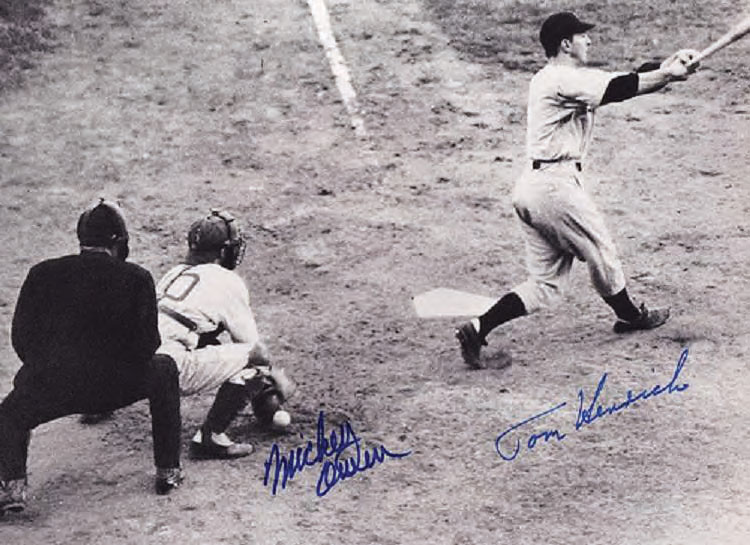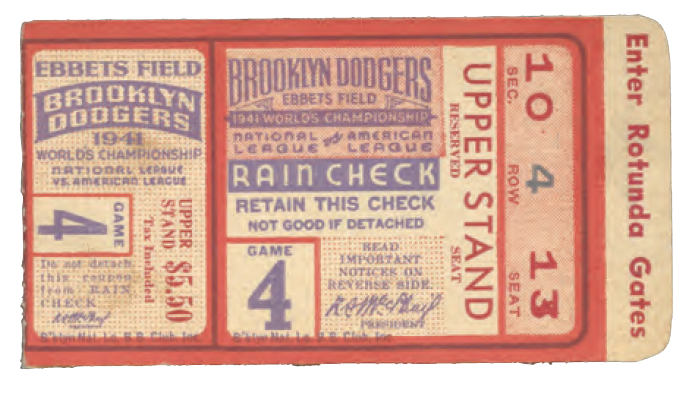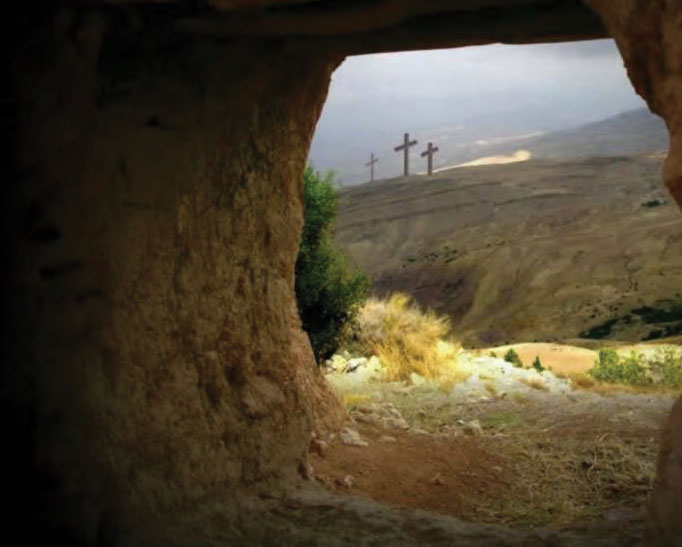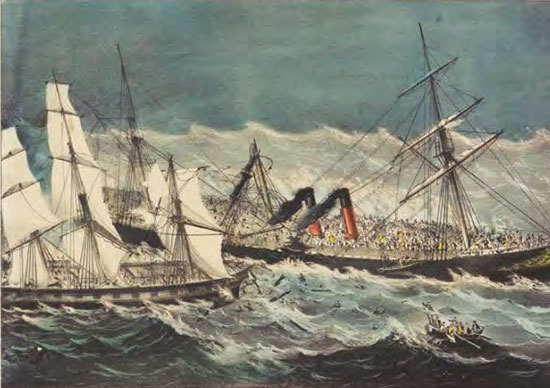
We’ve come through another series of the exciting sports event of World Series Baseball. Once claiming the title of America’s Greatest Sport, still held by many, thousands love to watch two teams battle for the title. There is one great story of this event we need to remember.
“In 1924 the World Series, the New York Giants and the Washington Senators were tied after six games. Griffith Stadium in Washington was packed for the final game on October 10, 1924. At the beginning of the ninth inning the score was tied at three runs each.
New York didn’t score any runs and Washington came to bat. The home team fans screamed for one lone run, which would win the series and the world championship for the Senators. The first two men made outs and it looked like there would be extra innings. Then a player named Leon ‘Goose’ Goslin came to the plate.
Two strikes were called and then two balls. The crowd was watching every pitch. On the fifth pitch, Goslin stepped into the ball and slammed it to left center field. The crowd became delirious; it looked like a home run, but it hit inches below the top of the wall and fell back onto the field of play.
Goslin was running around the bases, slowing down for a triple when the third base coach waved him on to try for an in-park home run. The shortstop took the peg from left center and fired the ball to the catcher. Goslin slid into home in a cloud of dust, seemingly a split second before the tag. The catcher followed the routine of throwing the ball around the bases, just in case, while waiting for the umpire to make the call. The umpire delayed his call. After consulting with the other umpires he cried, ‘You’re out!’
Washington player/manager, Bucky Harris, along with his team and fans rushed onto the field, protesting the call. The umpire secured order and announced, ‘Ladies and gentlemen, the batter is out…not because he didn’t beat the ball at home plate but because he didn’t touch first base!’ The players were always required to touch each base with their foot as they rounded the bases. Goslin didn’t do this!
The game went into extra innings. In the bottom of the twelfth inning, Early McNeely hit an infield ground ball that should have been an easy out. The ball took a bounce over the third baseman’s glove into left field. That was enough to score Washington catcher Ruel from third base with the winning run. It was the first World Championship Washington won. What a World Series.”
Angel Martinez, colorful and well known Hispanic evangelist from San Antonio, Texas, remembered this World Series story in his special message “Play Ball.”
He said First base represented “Salvation.” Second base represented “Baptism and Church Membership.” Third base stood for “Christian Service.” And Home plate was “Heaven.”
Martinez said you think you’re doing all the right things and believe you are sliding into home plate just ahead of the catcher receiving the ball. You’re safe. The game is won.
Identification in Baptism and Church Membership (Second Base) and outreach and service through Evangelism (Third Base) are very important and wonderful. But reaching Heaven (Home Plate) will not be what is expected if Salvation (First Base) has not been touched.
“For God so loved the world that He gave His only begotten Son, that whosoever believeth in Him should not perish but have everlasting life…For Christ also suffered once for sins, the just for the unjust, that He might bring us to God, being put to death in the flesh, but made alive by the Spirit…But He was wounded for our transgressions, He was bruised for our iniquities, The chastisement of our peace was upon Him, And by His stripes we are healed. All we like sheep have gone astray; We have turned everyone to his own way; and the Lord has laid upon Him the iniquity of us all… Believe on the Lord Jesus Christ and you will be saved…the gift of God is eternal life in Christ Jesus our Lord…Behold, I stand at the door and knock. If anyone hears my voice and opens the door, I will come in to him and dine with him and he with Me.” [John 3:16; I Peter 3:18; Isaiah 53:5-6; Acts 16:31; Romans 6:23; Revelation 3:20]
Getting up to bat, hitting the ball and running the bases won’t count if you miss First Base. We may look like we’ve made it Home. But the Umpire Who sees it all and knows we must play by the rules will call us “out.”
John Henry Newman said, “Fear not your life shall have an ending, rather fear it shall never have a beginning.” That’s First Base…that’s salvation.
Till next time, Don Johnson, Kirby Pines Chaplain


 Financially, career-wise, relational and in many other areas we can easily drop the ball. It’s also true in the spiritual realm. Look at the story in Matthew 22:35-40, “Then one of them, a lawyer, asked Him a question, testing Him, and saying, ‘Teacher, which is the greatest commandment in the law.’ Jesus said to him, ‘You shall love the Lord your God with all your heart, with all your soul, and with all your mind. This is the first and great commandment. And the second is like it. You shall love your neighbor as yourself. On these two commandments hang all the Law and the Prophets.’” Jesus was paraphrasing the words from the Jewish Torah. When we consider His challenge it must be evident that we all have dropped the ball.
Financially, career-wise, relational and in many other areas we can easily drop the ball. It’s also true in the spiritual realm. Look at the story in Matthew 22:35-40, “Then one of them, a lawyer, asked Him a question, testing Him, and saying, ‘Teacher, which is the greatest commandment in the law.’ Jesus said to him, ‘You shall love the Lord your God with all your heart, with all your soul, and with all your mind. This is the first and great commandment. And the second is like it. You shall love your neighbor as yourself. On these two commandments hang all the Law and the Prophets.’” Jesus was paraphrasing the words from the Jewish Torah. When we consider His challenge it must be evident that we all have dropped the ball.
 Important questions face us daily. “Why me? Why this? Why now?” Answers are difficult to find. Reasons are hard to discover. Solutions seem wrapped in secrecy. But more than these there is a unique and powerful question that covers a vaster scope of life. It is the dramatic two-word statement, “What Then?” Issues rise and fall. Circumstances revolve around a sphere greater than earth. We can’t believe what we see in the mirror and are challenged to amazement and at times even bewilderment. I think this question is best illustrated in the words of J. W. Green.
Important questions face us daily. “Why me? Why this? Why now?” Answers are difficult to find. Reasons are hard to discover. Solutions seem wrapped in secrecy. But more than these there is a unique and powerful question that covers a vaster scope of life. It is the dramatic two-word statement, “What Then?” Issues rise and fall. Circumstances revolve around a sphere greater than earth. We can’t believe what we see in the mirror and are challenged to amazement and at times even bewilderment. I think this question is best illustrated in the words of J. W. Green. The events that capture our thoughts at this season often prompt us to remember history past. We focus on the Person and the places that dramatically changed the world. We wonder what it was that caused people 20 Centuries ago to be so committed in the early days of Christianity. The depth of commitment of the early Chris- tian leaders is remarkable beyond our understanding. Consider the following:
The events that capture our thoughts at this season often prompt us to remember history past. We focus on the Person and the places that dramatically changed the world. We wonder what it was that caused people 20 Centuries ago to be so committed in the early days of Christianity. The depth of commitment of the early Chris- tian leaders is remarkable beyond our understanding. Consider the following: We continue to stagger from unexpected tragedies like the Valentine’s Day Florida high school murder of students, teachers and coaches. Another sad reminder of how unstable life can be, another addition to similar events before that found us unprepared. What great grief was felt by the parents who sent their children to school never imagining it would be the last time they would see them alive. Dreams shattered…hopes smashed…the future stolen. Each family walked through its own set of bewildered unbelief at what had taken place. Each one dealt with the sorrow in personal responses that only they could embrace.
We continue to stagger from unexpected tragedies like the Valentine’s Day Florida high school murder of students, teachers and coaches. Another sad reminder of how unstable life can be, another addition to similar events before that found us unprepared. What great grief was felt by the parents who sent their children to school never imagining it would be the last time they would see them alive. Dreams shattered…hopes smashed…the future stolen. Each family walked through its own set of bewildered unbelief at what had taken place. Each one dealt with the sorrow in personal responses that only they could embrace.

 © 2025 Kirby Pines LifeCare Community. All Rights Reserved |
© 2025 Kirby Pines LifeCare Community. All Rights Reserved | 